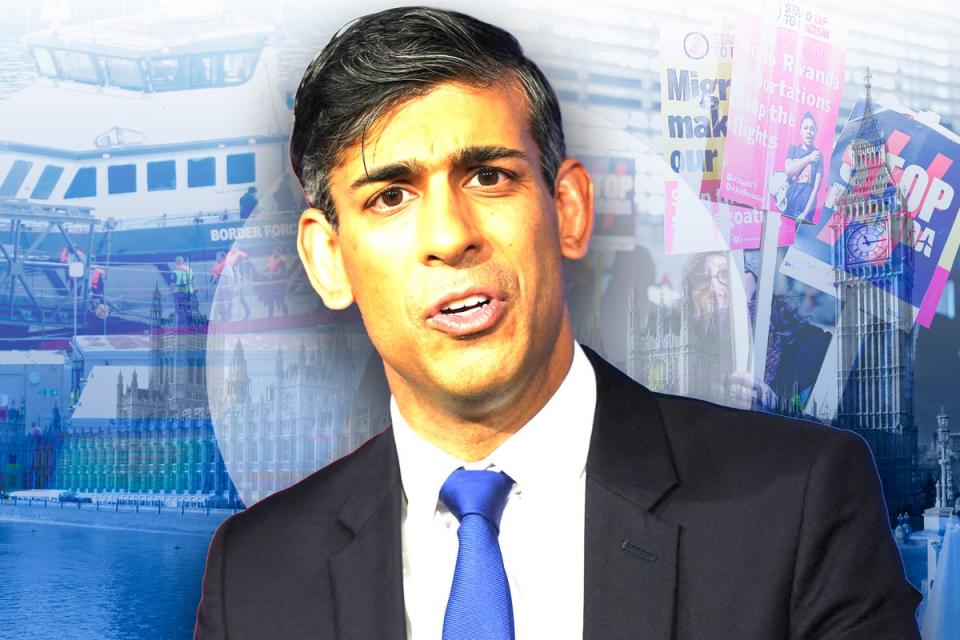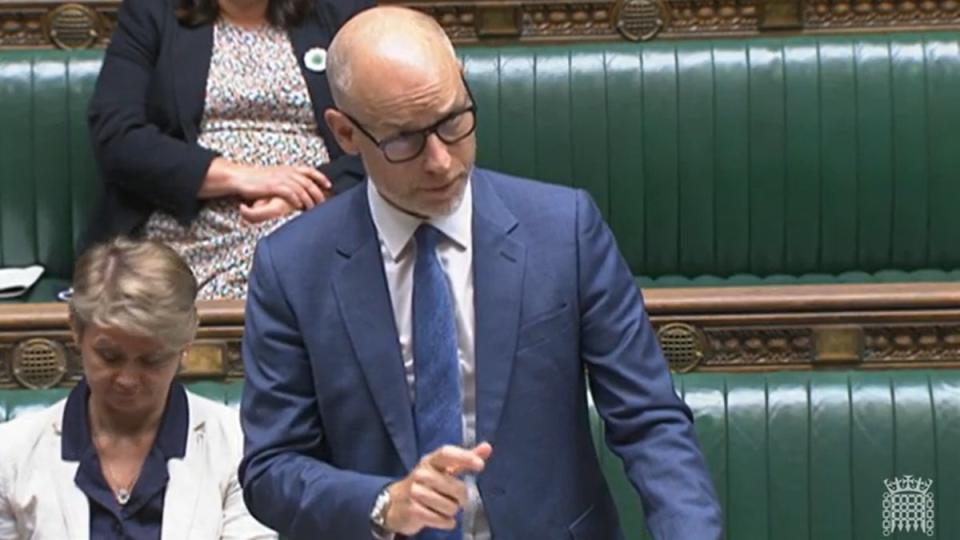Rwanda flights to go ahead as asylum policy finally passes into law in boost for Rishi Sunak
Parliament has finally passed Rishi Sunak’s “emergency” Rwanda bill but the controversial legislation is set to run into legal challenges that could still delay flights.
Mr Sunak has said that the first flight would take off in 10-12 weeks and regular trips will take place over the Summer “until the boats are stopped.”
His plan was finally given the green light on Monday evening after peers in the House of Lords gave up their fight with MPs over amending the legislation.
Lords had been trying to force the government to exempt Afghans who supported British troops overseas from being deported to Rwanda. They had also pushed an amendment that would have made sure the terms of the UK’s treaty with Rwanda were met and that it was assessed to be a safe country before flights took off.
However the government refused to cave to pressure and didn’t include the changes to the bill. Mr Sunak had already paid £240m to Rwanda by the end of 2023, and spending watchdog the National Audit Office says that the total cost of the plan will be at least £370m over five years.
Labour peers didn’t press the Afghan amendment on Monday night after Home Office minister Lord Sharpe said they would not deport members of Afghan special forces units who had been given the right to live and work in the UK by the Ministry of Defence. But they did vote in favour once for the amendment on assessing the safety of Rwanda.
Home Office minister Michael Tomlinson told the Lords that their final amendment was “not necessary”, adding: “These amendments have already been rejected, enough is enough.”
Labour’s shadow immigration minister Stephen Kinncok said it was “staggering” that the government refused to concede on the clause ensuring the safety of Rwanda. He added: “This is a post-truth bill. You cannot possibly legislate for something which is in the lap of the gods”.
SNP MP Alison Thewliss criticised Labour peers for not pushing the flights exemption for Afghans who supported British troops. She told MPs: “If they think this is some kind of concession I’ve got some magic beans to sell them.”

Despite the bill finally passing through parliament, it will likely face additional legal hurdles before flights actually take off.
Charities and unions will now see whether they can bring any legal challenges to the bill itself. One union, the FDA, is considering a challenge over the whether civil servants would have to ignore their professional code to follow minister’s instructions to ignore directions from the European Court of Human Rights (ECHR).
Refugee charities will support asylum seekers who are chosen to go on the first flights to challenge their deportation. Although the courts will not be able to consider whether Rwanda is safe, they may be able to consider how a Rwanda deportation would affect each asylum seeker personally - for example if the asylum seeker is a victim of trafficking, or is LGBTQ+.
If they are unable to find a hearing in the UK courts, cases could go all the way to the ECHR - with Strasbourg judges ruling whether deportation is lawful. Mr Sunak has already said he will ignore a ruling from the ECHR and press ahead anyway.
The prime minister said in a press conference on Monday that the government had already booked commercial charter planes for specific slots to remove asylum seekers to Rwanda. He said some 500 escorts had already been trained for the job of removing people, and there were 2,200 spaces in detention ready.
Mr Sunak, who has made stopping the boats one of his five key pledges, was left scrambling to save his flagship plan after the Supreme Court ruled it unlawful late last year.
In a damning judgement, the highest court in the land found that there was a real risk asylum seekers sent to Rwanda could be returned to their home countries to face “persecution or other inhumane treatment”.
In response, Mr Sunak pledged new “emergency” legislation to get flights in the air.
But a public call for parliament not to thwart his plans backfired as the government was defeated again and again in the House of Lords, leading to months of bitter wrangling.

Labour’s Mr Kinnock called the bill “deeply damaging” to the UK and said it was “unconscionable” that Britain might now send brave Afghans who fought alongside UK armed forces to Rwanda.
Shadow home secretary Yvette Cooper said the Rwanda scheme was “an extortionate gimmick”. She added: “The prime minister knows this scheme won’t work, that’s why he tried to cancel it when he was Chancellor, and why even now he won’t say how many people will be on the token flights.”


